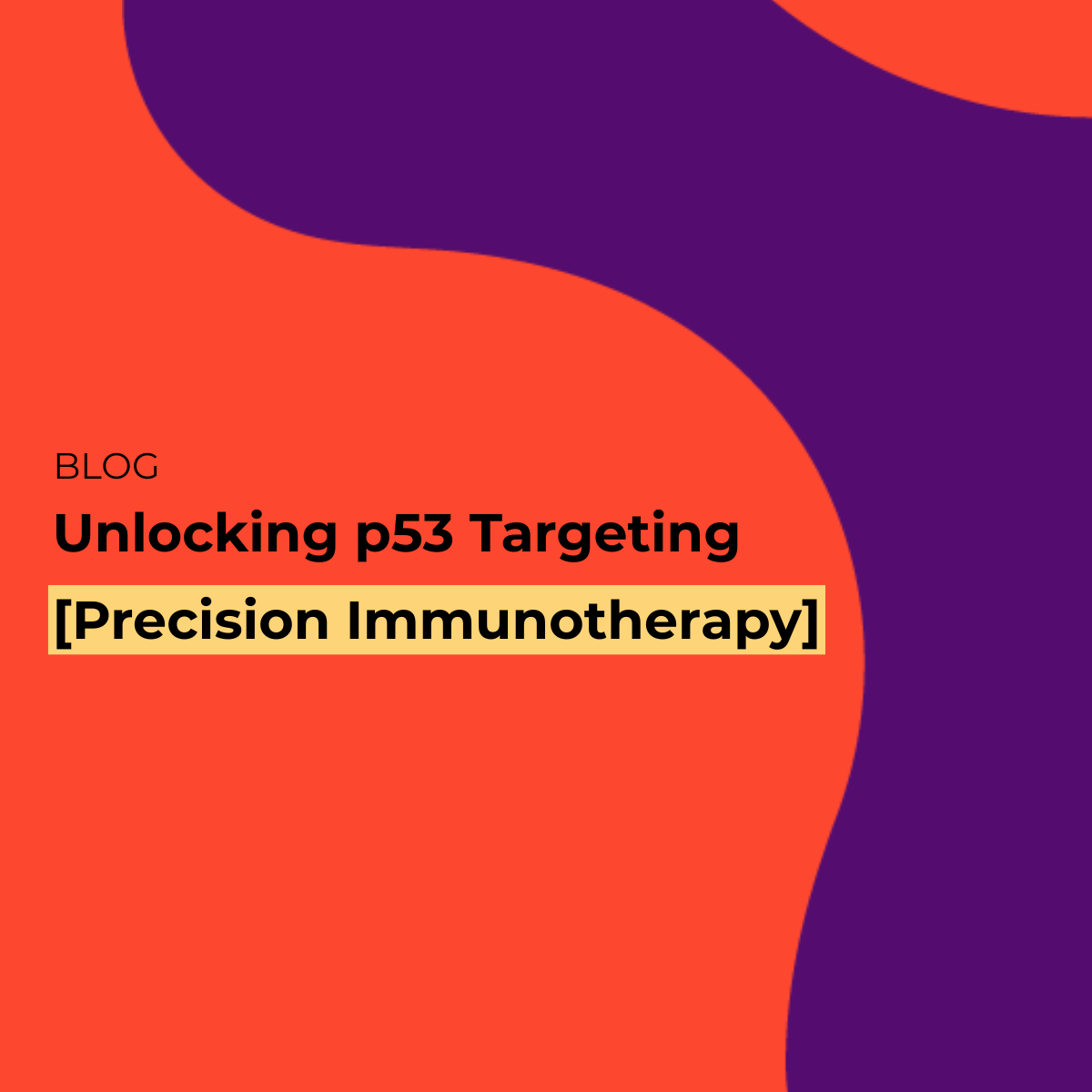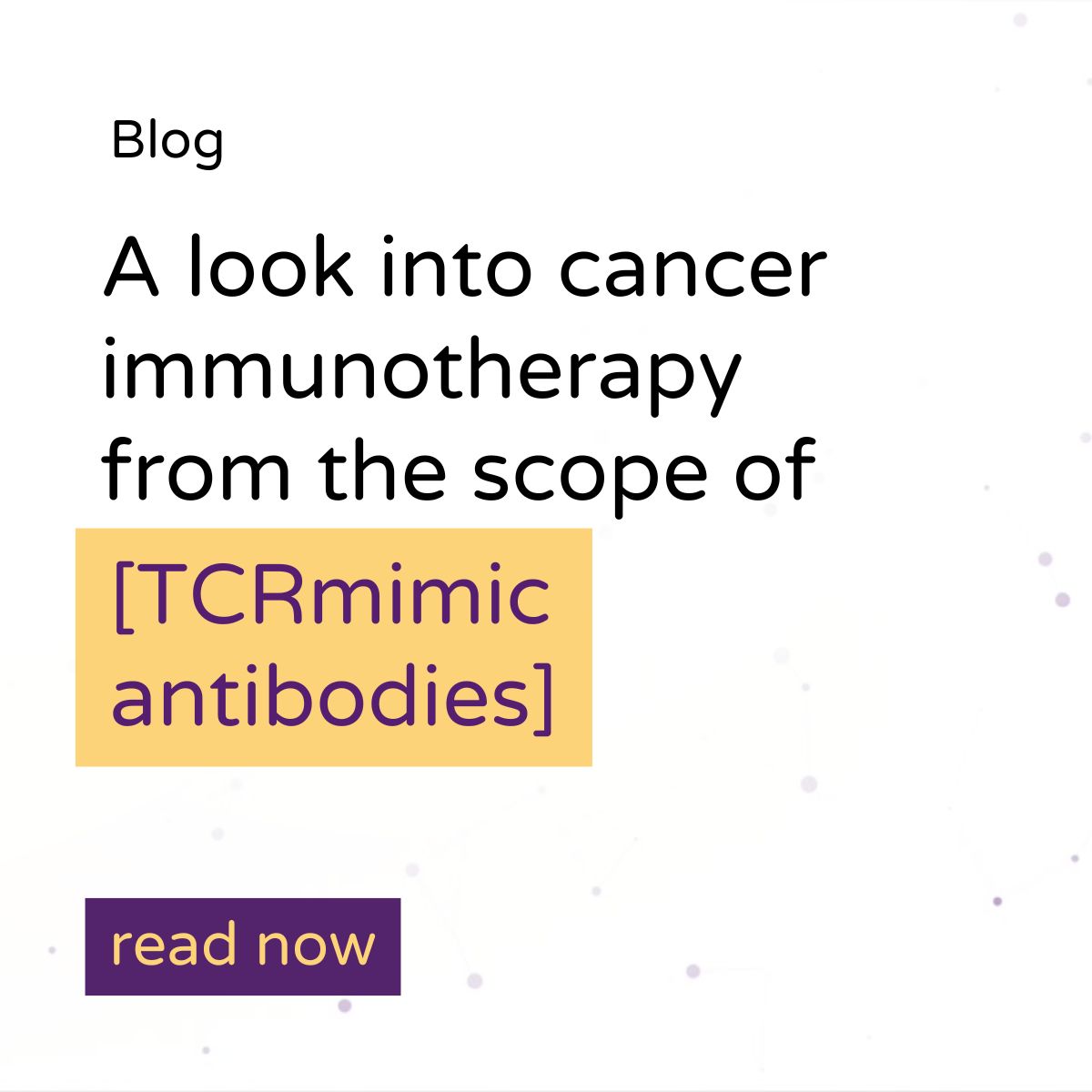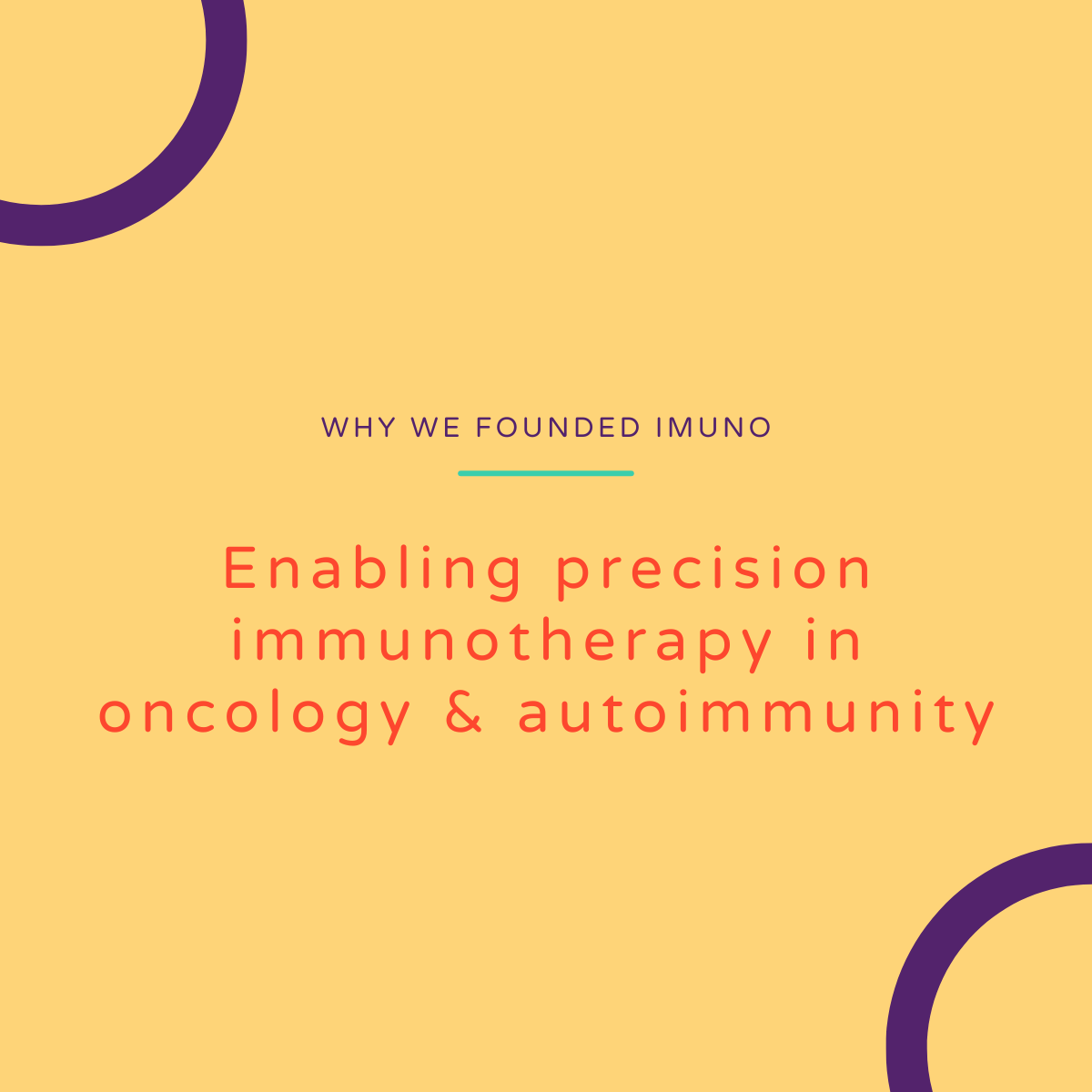Cancer remains one of humanity’s most complex and challenging diseases. While treatment options have advanced significantly, millions of patients still urgently need more effective, precise therapies. At Imuno, we go into the laboratory every day with a bold mission: to develop groundbreaking immunotherapies tailored specifically to patients who have exhausted conventional options. Instead of settling for generalized solutions, we firmly believe the future lies in therapies tailored to each patient’s unique tumor. Something we refer to as – precision immunotherapy.
One of the first therapies we developed to validate our innovative platform, is a therapy against a well-known yet elusive protein called p53, famously known as the “guardian of the genome.” In this blog, we’ll explore the exciting potential of developing p53 targeting immunotherapy and discuss why conventional approaches have struggled to unlock this powerful cancer-fighting target.
What is p53 and Why is it Important?
Our bodies are made out of cells, each having its distinct function. Imagine each cell as a tiny factory that keeps our body healthy by performing specialized tasks. These specialized tasks are determined by the DNA and proteins that are present within each cell. DNA is a molecule that contains all the instructions how each cell should operate. And in order to operate, each cell produces proteins derived from the DNA instructions, which can be seen as tiny molecular machines that perform specific tasks inside cells.
In our healthy cells, these processes work correctly. But sometimes, DNA gets damaged. Factors like sunlight or chemicals can increase the chance of these damages. Usually, cells can fix these damages using specialized tools in order to ensure that cells keep on operating correctly. As these damages occur all the time, detecting these is an important element of making sure our cells remain healthy.
One of these proteins that “checks” if DNA is damaged is p53. When damage occurs, p53 either helps repair the DNA or, if the damage is too severe, instructs the cell to safely shut down (a process known as programmed cell death). This process helps prevent damaged cells from becoming cancerous. However, when p53 itself becomes damaged or mutated, this protective function fails. Instead of stopping cancer, the mutated version of p53 helps cancer cells grow faster and resist treatments, making the cancer more aggressive.
So how often do mutations happen every day?
When cells divide:
- Your body has around 37 trillion cells, and billions of them divide daily.
- The human genome is about 3 billion base pairs long, and when cell divide 1 error per 100 million bases occurs on average.
- Fortunately, due to repair mechanisms such as p53, the final error rate drops to ~1 error per cell division.
Good to know:
- Although millions of mutations are happening across your body every day, they almost never induce disease.
- Most of these mutations occur in non-coding regions of the genome which do not play any role in the production of proteins.
- In addition, your body has robust DNA repair systems and immune surveillance to catch and control potentially dangerous mutations.
So: mutations are common, but your body has evolved powerful proofreading, repair, and immune systems to keep things in check.
p53 Mutations and its Role in Cancer
Mutations in the gene that produces p53 (known as TP53) are incredibly common, appearing in more than half of all human cancers. These mutations are particularly frequent in cancers such as:
- Ovarian cancer (around 95%)
- Colorectal cancer (around 60%)
- Lung cancer (around 50%)
- Pancreatic cancer (around 70%)
- Breast cancer (around 35%)
Because these mutations are so widespread, targeting them offers the potential to significantly improve cancer treatment outcomes for millions of patients. By developing therapies aimed directly at mutated p53, we could create treatments that specifically target the underlying cause of many cancers. Such therapies could greatly enhance treatment effectiveness, reduce side effects, and provide new hope for patients suffering from aggressive cancers that have been challenging to treat using traditional methods.
Spotlight on a Specific Mutation: p53 R175H
Among the various mutations in p53, one called R175H is especially important. Around 5-7% of all TP53 mutations are R175H. This might seem small, but it actually represents tens of thousands of cancer patients every year. Cancers with the R175H mutation often grow aggressively, spread quickly, and are notoriously difficult to treat with standard therapies like chemotherapy and radiation. The R175H mutation changes the shape of the p53 protein, making it unable to perform its protective role. Instead, it actively helps cancer cells survive and thrive.
Initial clinical studies focusing on the R175H mutation have highlighted that this mutation can be succesfully targeted. For example, a study performed by the famous cancer research and physician Dr. Steven Rosenberg, showed that when a patient’s own immune cells where stimulated to recognise the p53 R175H mutation, it could directly slow tumor growth and cause significant tumor shrinkage. These outcomes highlight the tremendous potential and urgent need for further research and development targeting this specific mutation by precision immunotherapy.
Challenges in Developing p53 Precision Immunotherapy
Despite the potential, targeting mutated p53 has proven difficult for several reasons:
- Complex Structure: Mutated p53 proteins have complicated and varied structures, making it hard to create drugs that effectively target them all.
- Specificity Issues: Therapies must precisely target only the mutated form of p53 without affecting the healthy, normal p53 protein, as this could cause serious side effects by harming healthy cells.
- Drug Resistance: Cancer cells often quickly develop resistance to initially effective treatments, presenting a significant challenge. This resistance can occur due to genetic changes in cancer cells, making sustained treatment effectiveness difficult.
Recent Advances and How We’re Addressing These Challenges
At Imuno, we are dedicated to addressing these challenges through precision immunotherapy. Our therapeutic candidates harness the body’s immune system to target cancer cells with the p53 R175H mutation. By educating the immune system to recognize mutated p53 specifically, we can precisely attack cancer cells while sparing healthy cells.
How did we develop a best-in-class p53 therapy?
We are building a discovery platform that allows us to develop highly specific and effective therapies in a fast turnover time. Our successes are due to our focus on several key pillars:
- Precision Immunotherapy: We develop specialized antibodies (called TCR-mimic antibodies) that help the immune system accurately identify and eliminate cancer cells, like our therapy targeting mutated p53.
- TACTICS Platform: Our proprietary technology, Imuno TACTICS, uses structural mapping to identify precisely what part of the diseased cells needs to be targeted. We can identify exactly which diseased protein on the surface, and more precisely how we need to interact with that specific protein. As a result, we develop highly specific therapies that are fully specific for diseased cells. This significantly increases the efficacy of our therapeutic candidates and reduce the chance of harmful side effects.
- Early Successes: Preclinical studies have shown that our method significantly improves safety and effectiveness compared to traditional treatments. Our molecules are much more specific, while being equally potent. As such, our therapies have the potential to be extremely effective in eliminating tumor cells, yet with fewer side effects.
The Exciting Promise of p53 targeting Precision Immunotherapy
Precision targeting of p53 mutations has immense potential to revolutionize cancer treatment. Unlike traditional therapies, which often have significant side effects and limited effectiveness, our approach is highly targeted. By focusing exclusively on mutated cancer cells, we can achieve better outcomes with fewer side effects, dramatically improving patients’ quality of life.
Clinical studies already show promising results, particularly for aggressive cancers previously resistant to conventional treatments. For example, early clinical trials demonstrate reduced tumor size and prolonged patient survival when mutated p53 is directly targeted.
Our Vision for Precision Immunotherapy
At Imuno, we envision a future where cancer therapies are being developed to targets that are tumor-specific. This will allows us to make effective therapies that will also be extremely safe. With the Imuno TACTICS platform we are making this possible. Our p53 program is one example of our capabilities to develop precision immunotherapy. We continue to scale our platform, explore novel targets that are found among large patient groups, yet in the same time also explore the opportunities to bring truly personalised precision immunotherapy to patients.
Further reading
A phase-1 study investigating autologous cell therapy to target p53 R175H positive tumors



